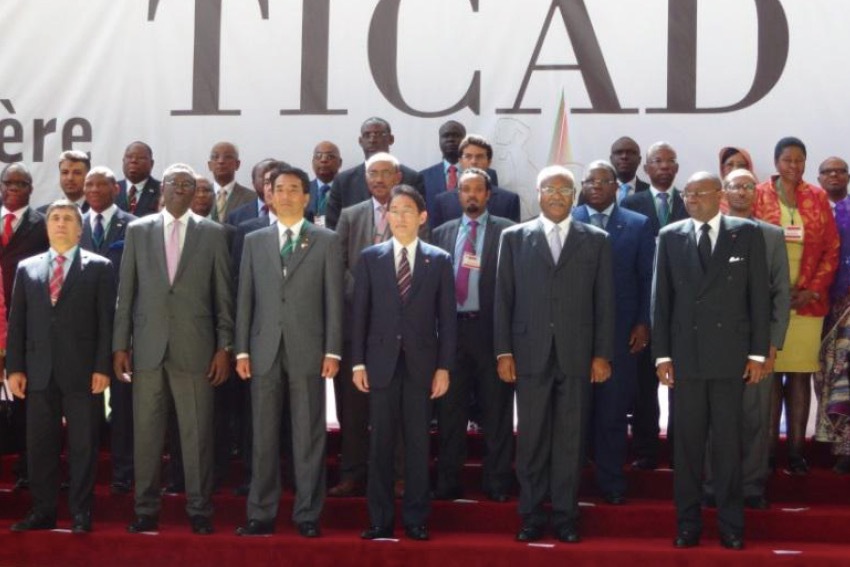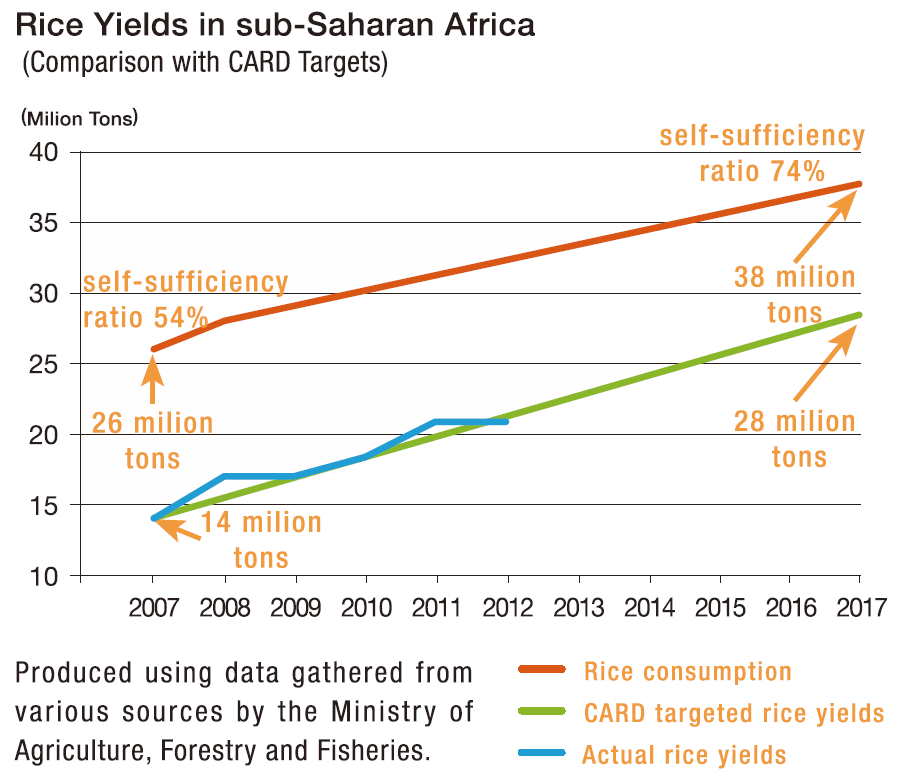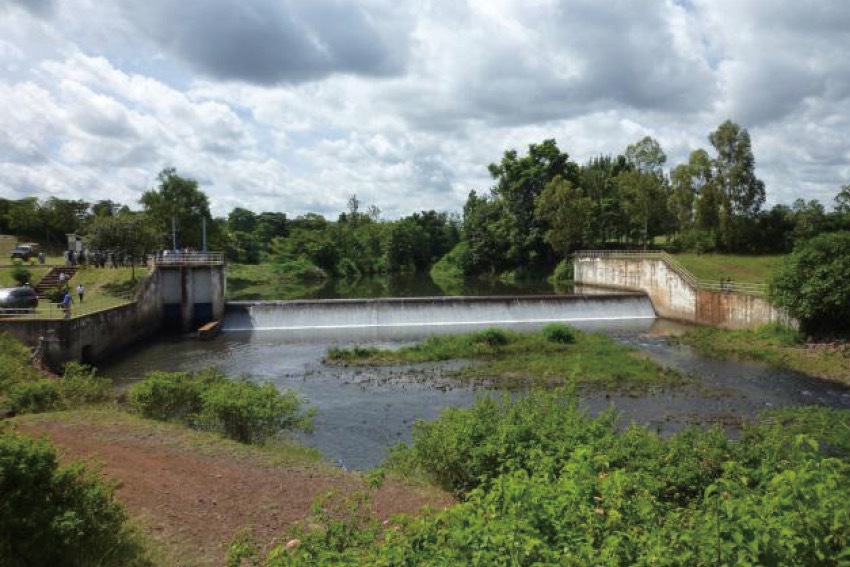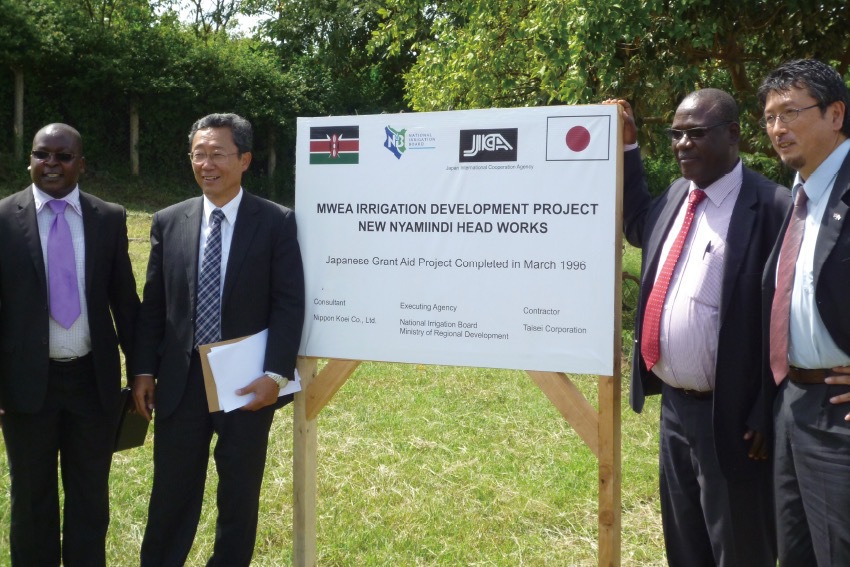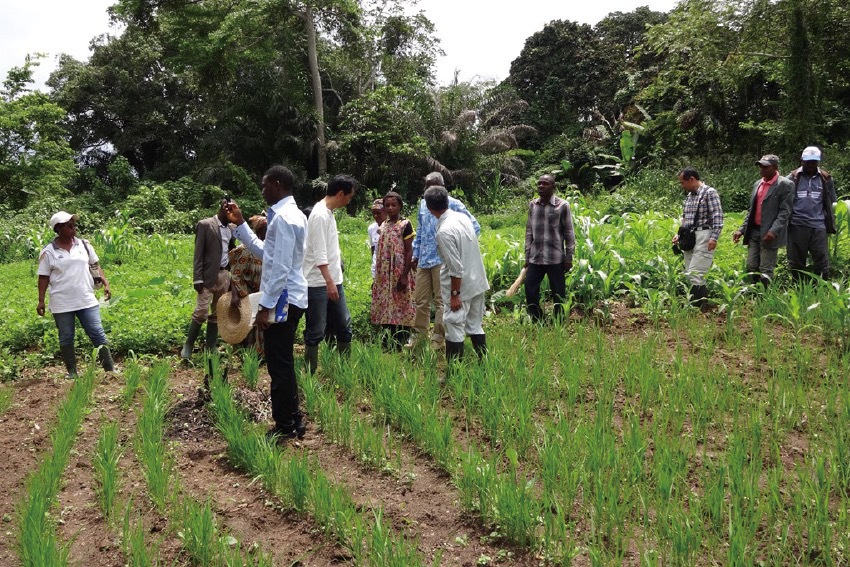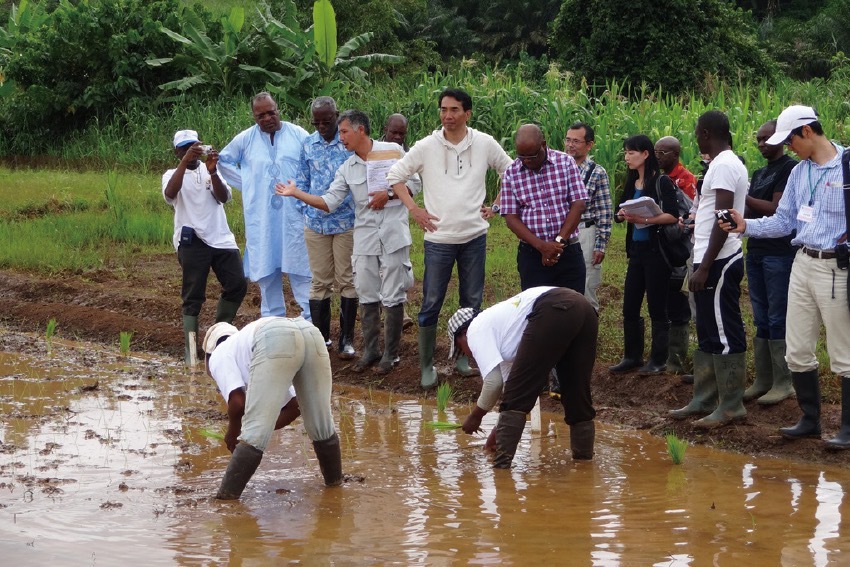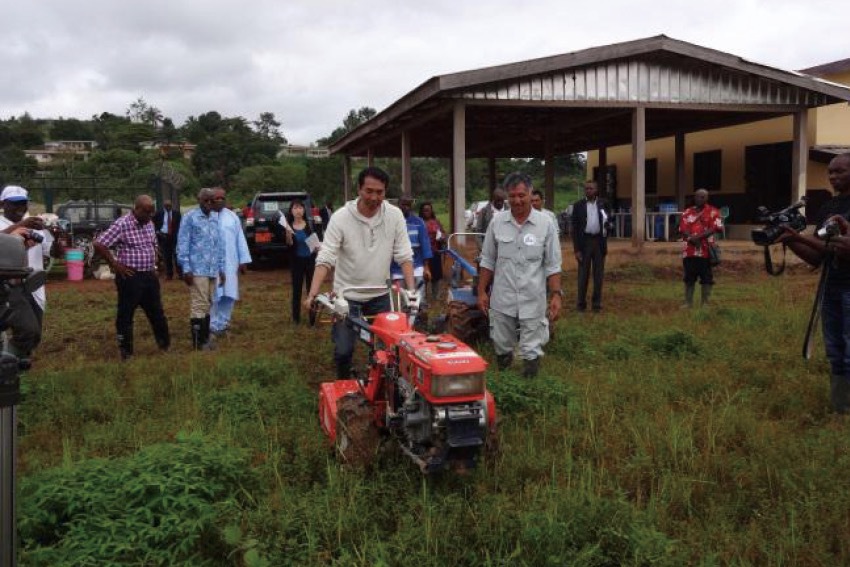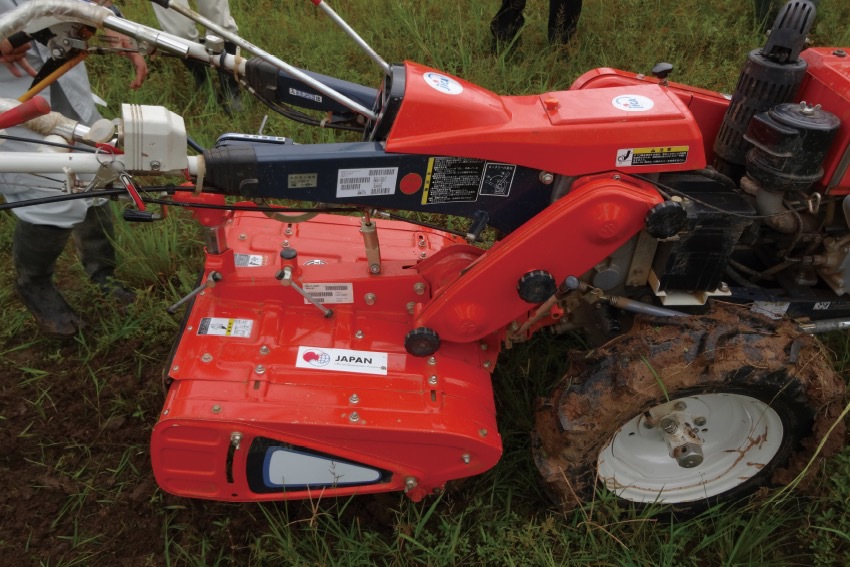For many years, overcoming food and nutritional shortages has been a major challenge in Africa. The United Nations places the eradication of extreme poverty and hunger by 2015—including halving the proportion of people who suffer from hunger globally—at number one on its list of Millennium Development Goals, and it is clear that expansion of agriculture and food production in Africa is a key step toward achieving this aspect of the goal.
Since 1993, Japan has hosted the Tokyo International Conference on African Development (TICAD) in conjunction with the United Nations, the United Nations Development Programme (UNDP), the African Union Commission (AUC), and the World Bank. Agriculture became one of the major themes at TICAD V, held in June 2013 in Yokohama, and those in attendance agreed to strengthen assistance to Africa based on the strategy of “empowering farmers as mainstream economic actors.”
At the First TICAD V Ministerial Meeting in Cameroon in May 2014, a plenary session focusing on agriculture, food, and nutrition security was held for the first time. This session was attended by Senior Vice-Minister of Agriculture, Forestry and Fisheries Taku Eto whose speech outlining Japan’s extensive activities to support agricultural development in Africa, won plaudits from delegates. Some of the same points Mr. Eto raised relating to Japanese agricultural assistance in Africa are detailed below.
Support for Rice Production
In recent years, a dramatic increase in demand for rice has taken place across Africa, fueled by population growth, changes in lifestyle, and other factors. In order to meet this heightened demand, improving rice yields is a matter of great urgency.
Japan has lent its support to the Coalition for African Rice Development (CARD), an organization active in 23 of sub- Saharan Africa’s rice-producing nations, with the aim of doubling annual rice production in the region to 28 million tons by 2018. With the 2012 yield recorded at 20.7 million tons, there are signs that—thanks to the widespread adoption of NERICA (a breed of rice specifically developed to suit cultivation conditions in Africa), as well as instruction and guidance regarding cultivation technology—steady progress is being made toward this goal.
Japan aims to utilize the expertise and experience accumulated in its long history of rice cultivation in order to achieve the objectives of CARD.
Fostering High Value-Added Agriculture
Fostering high value-added agriculture is crucial to the promotion of agricultural development. For example, Japan is currently engaged in promoting the Smallholder Horticulture Empowerment Project (SHEP) approach in Kenya, which helps smallholder and female farmers produce crops that better respond to market needs. Through such activity, we are finding success in boosting the incomes of smallholder farmers and empowering women across the region.
At present, we are supporting measures to expand the SHEP approach all across the African continent. Implementation has already begun in Rwanda, and advanced preparations are under way to undertake similar projects in Egypt, Uganda, Madagascar, South Africa, and elsewhere.
Establishment of Food Value Chains
A food value chain is an integrated system to connect each stage in the production, storage, processing, distribution, and consumption of agricultural products and food. The implementation of such systems not only adds economic value to agricultural products and food, but also ensures efficient distribution and reduces losses, leading to increased food security, especially in developing countries.
Public-private partnerships are the key to ensuring the successful establishment of food value chains, and Japan is lending its support in order to make the best possible use of the technology and know-how of private enterprise.
Participants at the first TICAD V Ministerial Meeting in Cameroon. Minister for Foreign Affairs Fumio Kishida (front row, center) and Senior Vice-Minister of Agriculture, Forestry and Fisheries Taku Eto (front row, third from left).
Irrigation project in Mwea, Kenya. Small-scale dams were constructed by Japan’s ODA in order to divert water to rice fields.
Upland rice development of the tropical forest zone in Cameroon as part of a project by the Japan International Cooperation Agency (JICA).
Senior Vice-Minister of Agriculture, Forestry and Fisheries Taku Eto tries out a Japanese-made tilling machine that was supplied through Japanese aid.































































































































